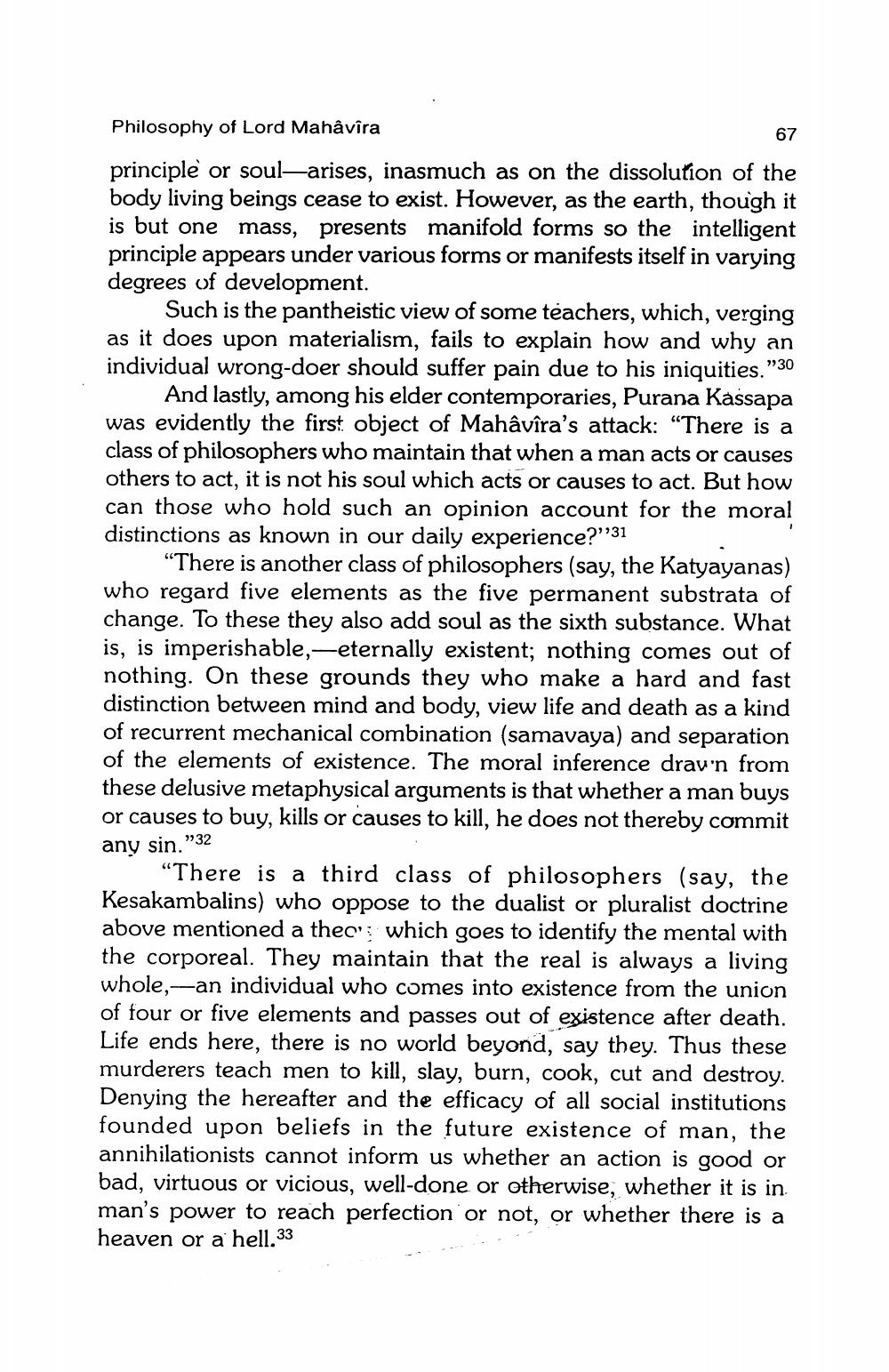________________
Philosophy of Lord Mahâvîra
67 principle or soul-arises, inasmuch as on the dissolution of the body living beings cease to exist. However, as the earth, though it is but one mass, presents manifold forms so the intelligent principle appears under various forms or manifests itself in varying degrees of development.
Such is the pantheistic view of some teachers, which, verging as it does upon materialism, fails to explain how and why an individual wrong-doer should suffer pain due to his iniquities."30
And lastly, among his elder contemporaries, Purana Kassapa was evidently the first object of Mahâvîra's attack: “There is a class of philosophers who maintain that when a man acts or causes others to act, it is not his soul which acts or causes to act. But how can those who hold such an opinion account for the moral distinctions as known in our daily experience?”:31
“There is another class of philosophers (say, the Katyayanas) who regard five elements as the five permanent substrata of change. To these they also add soul as the sixth substance. What is, is imperishable,-eternally existent; nothing comes out of nothing. On these grounds they who make a hard and fast distinction between mind and body, view life and death as a kind of recurrent mechanical combination (samavaya) and separation of the elements of existence. The moral inference drau'n from these delusive metaphysical arguments is that whether a man buys or causes to buy, kills or causes to kill, he does not thereby commit any sin.”32
“There is a third class of philosophers (say, the Kesakambalins) who oppose to the dualist or pluralist doctrine above mentioned a thec'which goes to identify the mental with the corporeal. They maintain that the real is always a living whole,-an individual who comes into existence from the union of four or five elements and passes out of existence after death. Life ends here, there is no world beyond, say they. Thus these murderers teach men to kill, slay, burn, cook, cut and destroy. Denying the hereafter and the efficacy of all social institutions founded upon beliefs in the future existence of man, the annihilationists cannot inform us whether an action is good or bad, virtuous or vicious, well-done or otherwise, whether it is in man's power to reach perfection or not, or whether there is a heaven or a hell. 33




